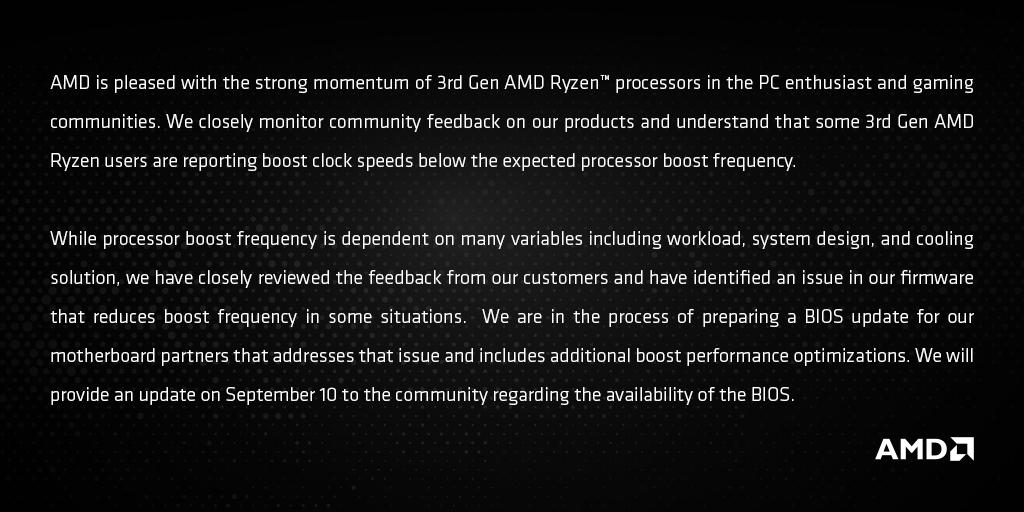A few weeks or so we reported that the AMD Ryzen 3000 series boost clocks can vary quite a bit, even per motherboard manufacturer. In that same timeframe overclocker Der8auer requested users to send in data, basically collecting what boost clocks they achieve on a single thread.
The results are in, it seems specifically a 5.5% for the Ryzen 9 3900X processors jumps stay in the logical spectrum e.g. does did reach the advertised single thread boost speed. To determine the maximum boost clock, everybody that joined in has been asked to run single-threaded Cinebench R15 and then verify the clock speed using the HWInfo tool. Herein already a bit of an issue can be found, as running the two together can already spawn multiple threads on load.
In total, a number of 2,700 processors have been tested and results collected and yes, 5.5% of the Ryzen 9 3900X achieved the advertised boost clock of 4.6 GHz. The majority of procs stay within 4.5 and 4.75 GHz. You should also be aware that 68% of the test results indicate a boost of 4.5 GHz or better, however, 32% did not. And that last bit I would agree, is weird.
Update1: Please refer to post #18 for more detailed info
Update2: AMD's response in post #34
Last edited:


